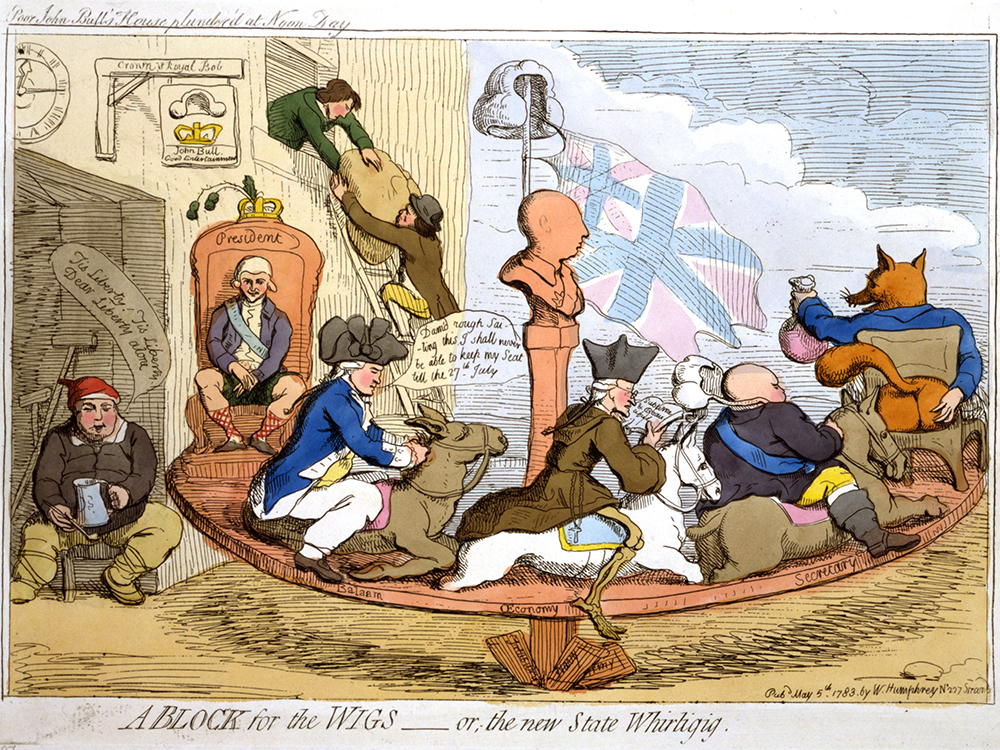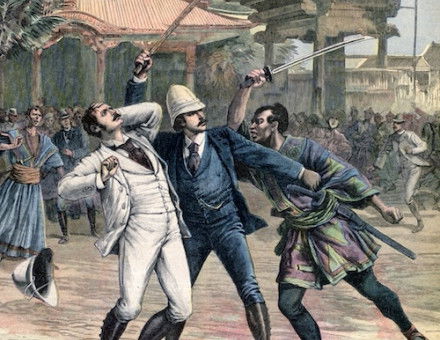Humanly Possible by Sarah Bakewell review
Humanly Possible: Seven Hundred Years of Humanist Freethinking, Enquiry and Hope is a Whiggish history of humanism from the Renaissance to the present.

The Whig interpretation of history, wrote Herbert Butterfield in 1931, meant writing ‘to emphasise certain principles of progress in the past and to produce a story which is the ratification if not the glorification of the present’. Humanly Possible is, by that measure, a Whiggish history of humanism. A lifelong humanist, Bakewell traces the chequered but irresistible development of her convictions from the Renaissance to the present, when they have not exactly triumphed, but have certainly proved their resilience.
Before embarking on a genealogy of humanism, Bakewell tries to say what it is. Humanism means an emphasis on the ‘human dimension of life’, although it turns out ‘almost everything we do can seem a bit humanistic’. More substance comes from its affinity with freethinking. Not all, or even most, humanists have denied the existence of the divine, but they have tried to stop it from becoming a distraction from, or obstacle to, human flourishing. As humanist advertisements on London buses advised some years ago: ‘There is probably no God. Now stop worrying and enjoy your life.’ Bakewell celebrates the great people of the past who have sought in that spirit ‘just a little more of the good stuff in life, and less of the bad stuff’.
The pursuit of the ‘good stuff’ falls into four phases. In their obsession with classical times, Renaissance scholars developed a new confidence in what humans could achieve, not least because they revelled in the power of their minds and even their physiques: Leon Alberti could throw an apple over the Duomo in Florence. Writers such as the anatomist Vesalius soon went beyond revering ancient authorities to exposing their mistakes. Enlightened thinkers added to this critical ferment an open hostility to theology and a commitment to social improvement. In the 19th century, intellectuals took up their meliorism, while completing the undermining of religion’s authority over human beings. Although scientific humanists came to understand humankind as the product of evolution by natural selection, their emphasis on our animal origins merely heightened their faith in duty and intellect. The final phase of humanism’s development was embattled. The First World War and the rise of fascism and communism menaced any faith in the dignity and equality of individuals. Yet this dark time was their finest hour: humanists saved Europe’s cultural patrimony from destruction, then founded the United Nations to enshrine its protection and the recognition of human rights.
Bakewell’s genealogy enlists for humanism all those whose ideas have had a ‘humanistic thrust’. This deliberately anachronistic approach echoes how humanists ransacked the past to construct a tradition. Renaissance scholars felt so much affinity with Cicero that they refused to use Latin expressions not found in his writings. When Lorenzo Valla exposed the Donation of Constantine as a forgery, he did so to help a patron in his dispute with the papacy. But that did not stop 19th-century philologists from revering him as the ancestor of their principled iconoclasm. Shortly after fleeing Nazi Austria, Stefan Zweig wrote a biography of Desiderius Erasmus, celebrating him as a fellow defender of the civilisation whose threatened ruin eventually drove Zweig to kill himself in Brazil.
A love of the human comedy keeps this narrative from schematic triumphalism. The book contains as many nice stories, little ironies and endearing quirks as ideas. One of Bakewell’s Renaissance Ciceronians was also a cookery book writer whose grilled eel à l’orange was so toothsome that Leonardo da Vinci served it up in his Last Supper. In the early 19th century, the sober Prussian educationalist Wilhelm von Humboldt nursed sexual fantasies of wrestling working-class women into submission. Because humanists extrapolated human nature from their peculiar selves, they were often misled into optimism. The Marquis de Condorcet finished his millenarian Sketch for a Historical Picture of the Progress of the Human Mind not long before being guillotined by the Jacobins.
Perhaps Bakewell is better labelled a centrist than a Whig. From eclectic reading she has erected a temple of the worthies peopled with intelligent grown-ups (mainly Europeans) who combated the misinformation of their times. There is David Hume, who was ‘so nice’ that in his last days he almost persuaded contemporaries one could die without the consolation of an afterlife. There is Darwin’s champion Thomas Henry Huxley, who today would be a hammer of Covid denialists. Sometimes these heroes sadly lacked courage. There are only two cheers for E.M. Forster, who wrote his novel Maurice to challenge society’s hostility to homosexuality but confined the typescript to a drawer. But worse failings lurk in Bakewell’s pantheon. Hume thought Africans ‘naturally inferior’ and urged his patron to buy a slave plantation in the West Indies.
Perhaps we can winnow the ‘brilliance’ of Hume and company from the racist and misogynist ‘daftness’ with which it was often mixed. Any idiot should have been able to see that slavery is wrong. But what is right is not always so obvious, even now. Bakewell thinks Soviet communism or giant modernist buildings are anti-humanist, for example, but not all would agree. Her bluff presentism also generates errors of understanding. Bakewell largely equates Christianity with gloomy fanaticism; humanists should have seen that faith is bunk. Voltaire and Paine’s deism becomes a fig leaf for scepticism; the Christianity of many enlightened thinkers merely a ‘formal’ profession. These judgements underestimate the extent to which Christianity remained a source for humanism. As Bakewell notes, American Unitarians founded the first humanist organisation.
As 19th-century scholars discovered, faith (and faithless) communities need their myths to function. But even card-carrying humanists might find this spirited book overly committed to the ratification of their opinions.
Humanly Possible: Seven Hundred Years of Humanist Freethinking, Enquiry and Hope
Sarah Bakewell
Chatto & Windus, 464pp, £22
Buy from bookshop.org (affiliate link)
Michael Ledger-Lomas is the author of Queen Victoria: This Thorny Crown (Oxford University Press, 2021).






